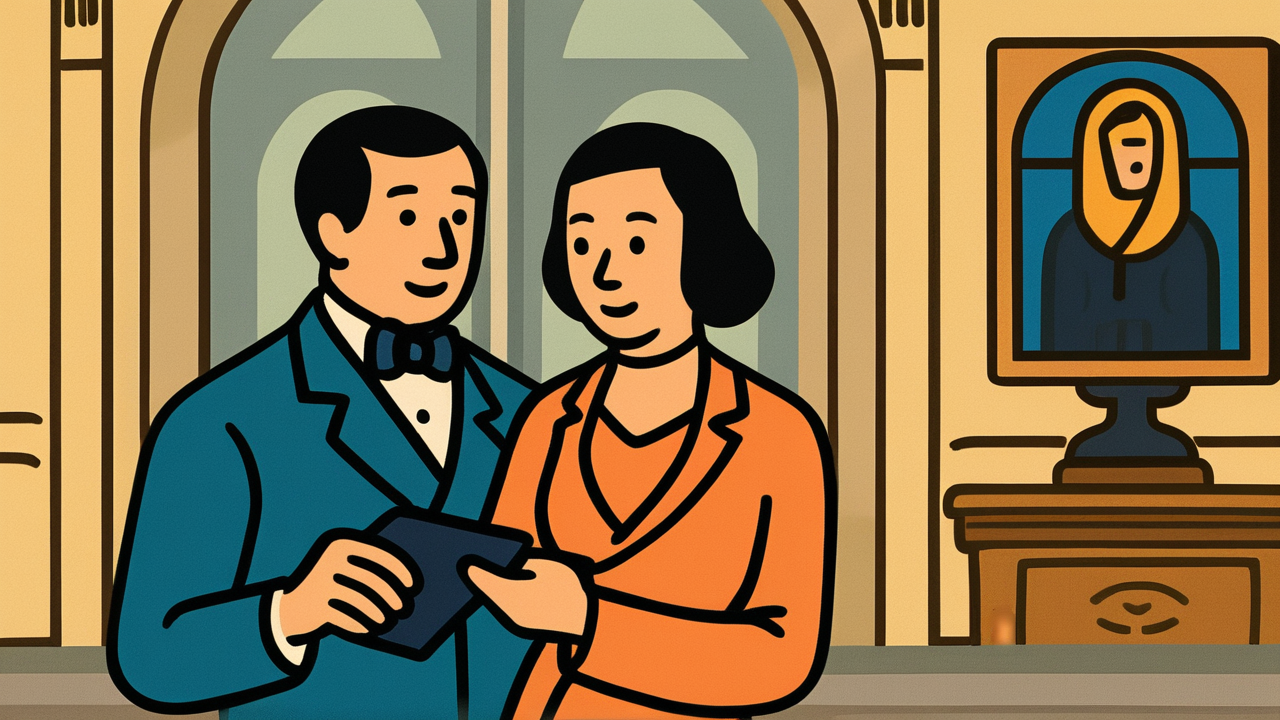How to Read “窈窕たる淑女は君子の好逑”
youchou taru shukujo ha kunshi no koukyuu
Meaning of “窈窕たる淑女は君子の好逑”
This proverb means “A woman of dignity and refinement is an ideal companion for a virtuous and distinguished man.”
The “graceful virtuous woman” referred to here indicates not merely a woman who is beautiful in appearance, but one who possesses both inner dignity and cultivation. “Gentleman” refers to a man of morally excellent character, and “good mate” means a good spouse. In other words, this proverb expresses the wonderfulness of truly valuable people being united together. This proverb is used when speaking about ideal marriages or unions between men and women, or when praising women of dignity. Even today, it is understood as a value system that emphasizes not just outward appearance but inner beauty, and continues to be passed down as an expression with deep meaning that makes us think about what true beauty is.
Origin and Etymology
This proverb originates from the Chinese classic “Book of Songs” (Shijing). The Book of Songs is China’s oldest collection of poetry, containing works from approximately the 11th to 6th centuries BCE. The original source is from the opening part of a poem called “Guan Ju,” which contains the phrase “窈窕淑女、君子好逑.”
“窈窕” means refined and beautiful, while “淑女” refers to a woman of dignity. “君子” means a virtuous and distinguished man, and “好逑” means a good companion. Thus it means “A dignified and beautiful woman is an ideal companion for a distinguished man.”
This poem was often sung at celebratory occasions such as weddings in ancient China, and became beloved as representative words expressing the ideal union between men and women. It is thought to have entered Japan along with the transmission of Chinese literature, and this expression can be found in Edo period documents. Given the historical context when Confucian values were emphasized, it became established as words expressing an ideal view of marriage that valued dignity and virtue.
Usage Examples
- As they say “Graceful virtuous woman is gentleman’s good mate,” a woman like her – they truly are an ideal couple
- As the old saying goes “Graceful virtuous woman is gentleman’s good mate,” it’s best when people of dignity are united together
Modern Interpretation
In modern society, significant changes have emerged in the interpretation of this proverb. It has come to be understood as a mutual relationship where “people who are suitable for each other are united,” rather than the traditional unidirectional perspective of “men choosing women.”
Particularly noteworthy is the change in the concept of “graceful virtuous woman.” In modern times, this is interpreted as comprehensive attractiveness that includes not only refinement, but also independence, expertise, and success in society. Regarding “gentleman” as well, rather than just social status or economic power, emphasis has come to be placed on personal maturity, understanding of others, and empathy.
In the modern era where SNS and matching apps have become widespread, physical attractiveness tends to take precedence, but this proverb asks us to reconsider the importance of inner dignity. On the other hand, not a few people feel uncomfortable with expressions based on traditional gender roles.
However, in the essential meaning of “the beauty of those whose values and dignity match being united together,” it contains universal truths that are still fully applicable today. Precisely because we live in an era that values diversity, it is being reevaluated as words that teach us the importance of discerning true compatibility and personal charm rather than superficial conditions.
When AI Hears This
Looking at modern dating apps, there’s a striking commonality in the type of women men seek. Keywords like “pure and modest,” “refined,” and “beautiful” line up consistently. This is no coincidence. The value system depicted in the Book of Songs from 3,000 years ago—that “beautiful and refined women are ideal”—has been passed down to the present day.
What’s fascinating is how this classical aesthetic directly conflicts with modern emphasis on diversity. For example, social media overflows with messages saying “it’s okay to be yourself as you are.” Yet in the dating market, the “graceful and virtuous lady” archetype is still very much in demand.
This contradiction creates unconscious pressure not only on men but on women as well. Many women feel they must “appear refined” or “behave modestly” because these classical values have become internalized.
Even more problematic is how extremely limiting this ideal image is. Energetic women, unique women, and assertive women tend to fall outside the scope of “desirable partners.” In other words, ancient poetry is narrowing the “correct answers” in modern romance.
Contemporary people superficially embrace diversity while remaining bound by classical aesthetic ideals in the depths of their romantic perspectives. Recognizing this cultural spell may be the first step toward true diversity.
Lessons for Today
What this proverb teaches modern people is the importance of discerning what true attractiveness is. Precisely because we live in an era where people tend to compete for the number of “likes” on social media or judge people by superficial conditions, it reminds us of the value of focusing on inner dignity and beauty of character.
Not limited to romance and marriage, this teaching can be applied to friendships and work partnerships as well. By carefully observing not just someone’s title or appearance, but their way of thinking, values, and how they treat others, we can build truly trustworthy relationships.
This proverb also teaches the importance of cultivating oneself. To become someone chosen by others, one must also acquire the dignity to be called a “gentleman” or “graceful woman.” While taking care of one’s appearance is important, even more so, deepening one’s education, nurturing a caring heart, and valuing sincerity leads to true attractiveness.
While diverse values are recognized in modern society, the desire for relationships that respect others and allow mutual growth may be an essential human wish that transcends time.



Comments